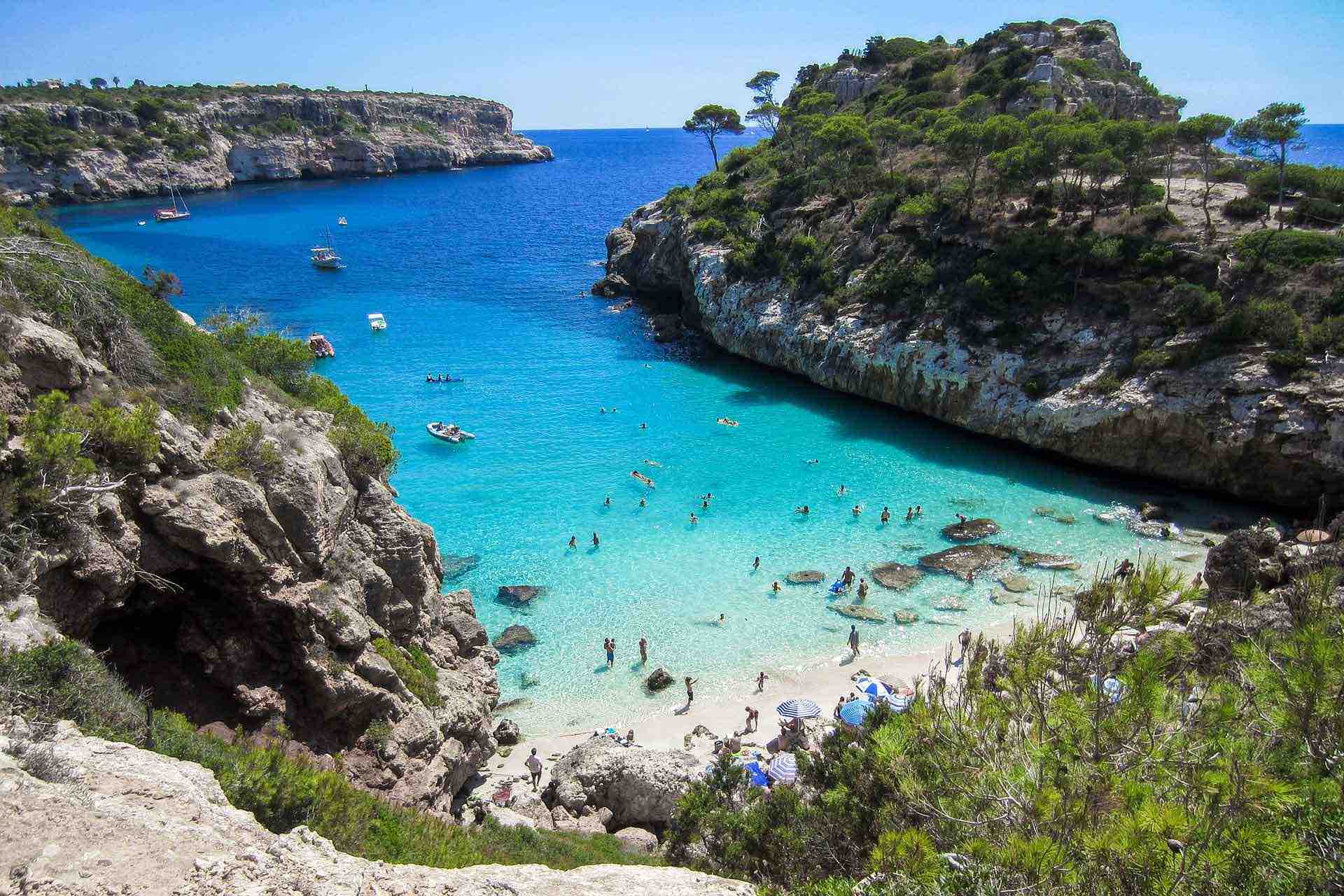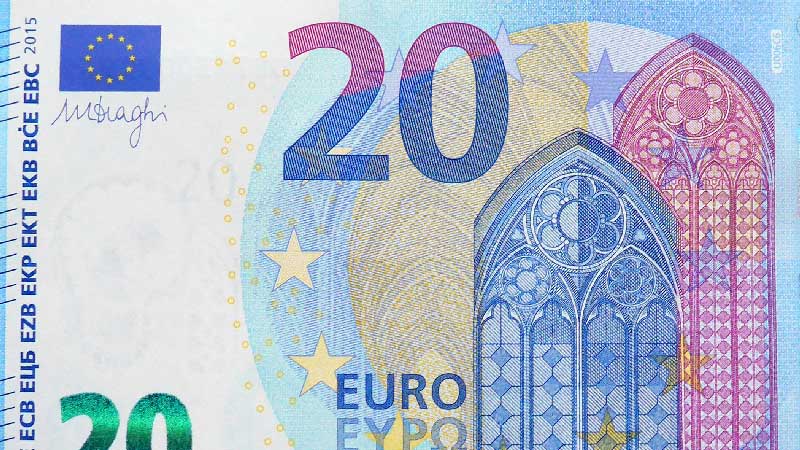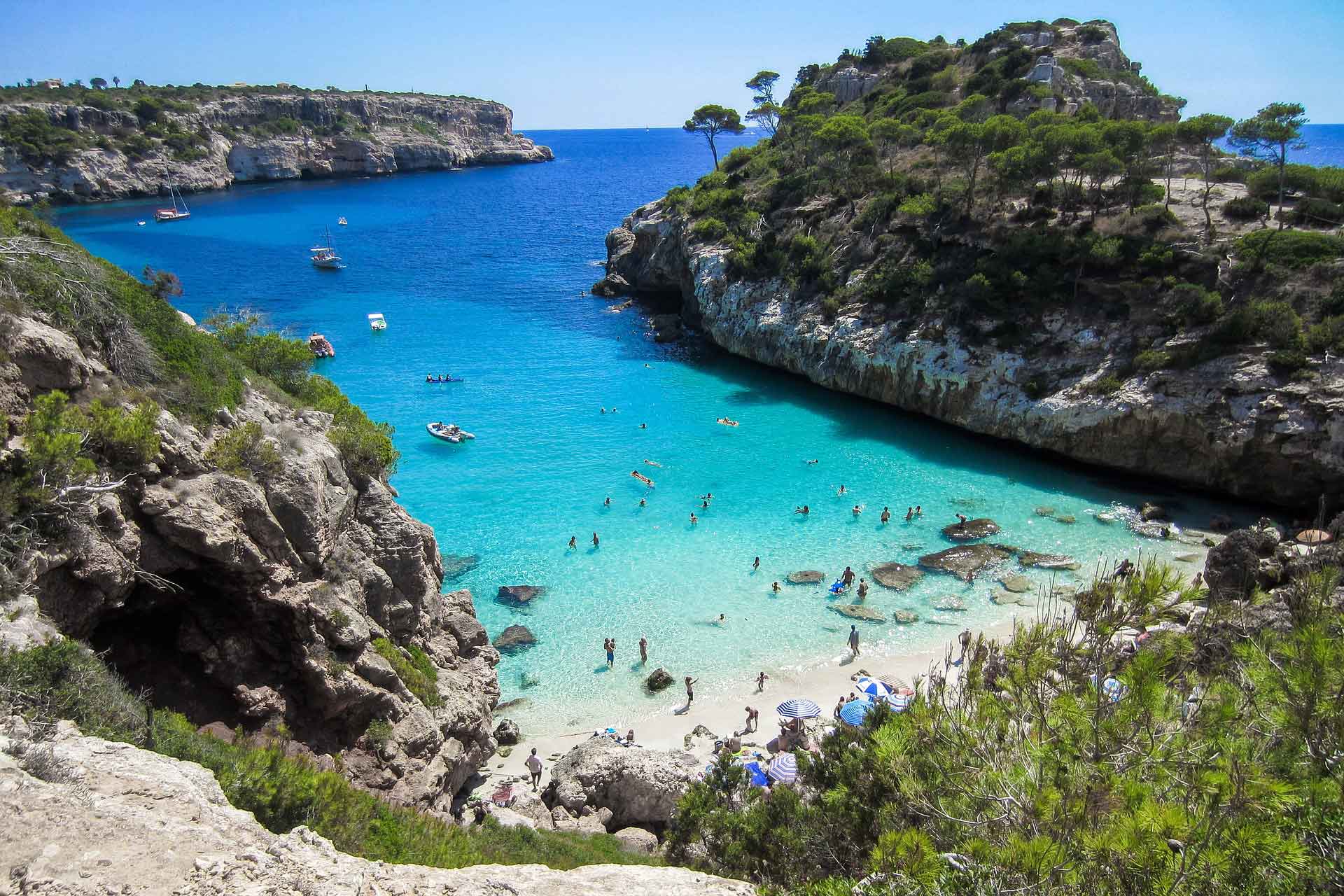Currency in Spain: EUR Send & Spend FX Guide
Resources for Expats, Travelers and Entrepreneurs Navigating Life and Trade in Spain with the Euro.

What's in this Spain currency guide?
What currency is used in Spain?
The official currency of Spain (country code: ES) is the Euro, with symbol € and currency code EUR.
What is a good Euro exchange rate?
The BestExchangeRates.com currency comparison table below helps you see the total cost of your currency transaction by showing the exchange rates offered by different providers. It also makes it easy to spot potential savings from market-leading FX services compared to bank rates.
To see a full list of rates, enter your transaction type, currencies and amount then click ‘GET RATES’:
Loading rates...
|
|
|
Good things to know about the Euro
As of June 16, 2025, the Euro (EUR) has experienced notable developments affecting travelers, expats, and business owners:
- Interest Rate Adjustments: The European Central Bank (ECB) has reduced its key interest rates multiple times since April 2025, with the deposit rate now at 2%. This easing cycle aims to stimulate economic growth amid global uncertainties. (ft.com)
- Inflation Trends: Eurozone inflation has moderated, with the latest data showing a decrease to 2.4% in November 2024, bringing it closer to the ECB's 2% target. (nbcdfw.com)
- Eurozone Expansion: Bulgaria is on track to adopt the euro on January 1, 2026, following successful convergence assessments. This expansion may influence currency dynamics and economic interactions within the euro area. (en.wikipedia.org)
These developments are crucial for individuals and businesses engaged in international transactions, as they can impact exchange rates, purchasing power, and overall economic conditions.
For more EUR information check out our selection of Euro news and guides.
Frequently Asked Questions
What currency should I use in Spain?
The domestic currency in Spain is the Euro.
What is the Euro currency code and symbol?
The three letter currency code for the Euro is EUR — symbol is €.
What does the Euro look like?
Here is an example Euro banknote:

Which countries use the Euro?
It is the domestic currency in Eurozone, Aaland Islands, Andorra, Austria, Belgium, Bulgaria, Croatia, Cyprus, Estonia, Finland, France, French Guinea, French Southern Territories, Germany, Greece, Guadeloupe, Vatican City, Ireland, Italy, Latvia, Lithuania, Luxembourg, Malta, Martinique, Mayotte, Monaco, Montenegro, Netherlands, Portugal, Reunion, Saint Barthelemy, Saint Martin, Saint Pierre and Miquelon, San Marino, Slovakia, Slovenia and Spain.
Is the Euro a closed currency?
No, the Euro is freely available and convertible. See guide: What is a closed currency?
What are equivalent amounts of CHF and EUR?
Here are some popular conversion amounts for CHF to EUR (Swiss franc to Euro)*.
| CHF | EUR |
|---|---|
| Fr. 1,000 | € 1,092 |
| Fr. 5,000 | € 5,461 |
| Fr. 20,000 | € 21,842 |
| Fr. 100,000 | € 109,210 |
More amounts
*Converted at the current CHFEUR interbank exchange rate. Calculate actual payout amounts for Send Money and Travel Money exchange rates.
Travel money for Spain
Using Wise for Euro travel money is a smart choice for savvy travelers. With its competitive exchange rates and low fees, Wise allows you to convert and manage multiple currencies effortlessly.
Be careful when using your own bank's Debit/Credit Card, as your bank may also charge an extra 3% as an “Overseas Transaction Charge” plus “Overseas ATM” fees for withdrawing cash on top of the standard Visa/Mastercard 2.5% from market mid-rate.
For card purchases, if you are offered a choice of currencies always select to Pay in Euro otherwise you will typically get much worst dynamic currency conversion (DCC) exchange rates.
If you really want Euro cash before departure, you can save money by ordering online. You generally get better rates and can pick up the EUR cash locally or even on travel day at the airport.
Spain: Travel Guide
Traveling to Spain requires careful financial planning to ensure a smooth and cost-effective experience. Here's a comprehensive guide to help you navigate currency considerations and manage your money effectively during your visit.

Spain is a country located in southwestern Europe known for its rich culture, history, and beautiful landscapes. It is a popular destination for tourists and expats alike, with its sunny climate, delicious food, and vibrant nightlife.
Tourists can visit famous landmarks such as the Alhambra in Granada, the Sagrada Familia in Barcelona, and the Park Güell also in Barcelona. Spain is also known for its beaches and coastal towns, such as the Costa del Sol and the island of Mallorca. Spain is also famous for its festivals, with some of the most famous being La Tomatina and Running of the Bulls.
Top things to do in Spain
Spain is a country with a rich culture and history, and there are many things to see and do for tourists. Here are some popular activities and attractions:
- Visit the Alhambra in Granada: This stunning palace and fortress complex is a UNESCO World Heritage Site and one of the most visited tourist destinations in Spain.
- Walk around Park Güell in Barcelona: Designed by the famous architect Antoni Gaudí, Park Güell is a colorful public park with stunning views of the city.
- Explore the Sagrada Familia in Barcelona: Another masterpiece of Gaudi, the Sagrada Familia is a massive, unfinished basilica that is considered one of the most iconic buildings in Spain.
- Go to the Running of the Bulls in Pamplona: Every July, the city of Pamplona holds the famous Running of the Bulls festival, where participants run through the streets with a herd of bulls chasing behind them.
- See the Prado Museum in Madrid: The Prado is one of the most important art museums in the world and home to works by famous artists such as Diego Velazquez and Francisco Goya.
- Visit the beaches of Costa del Sol or the island of Mallorca: Spain is famous for its beaches and coastal towns, with the Costa del Sol and the island of Mallorca being particularly popular destinations.
- Experience the Nightlife in Madrid, Barcelona, or Ibiza: Spain is known for its lively nightlife, with many bars, clubs and discos to enjoy.
- Take a cooking class to learn how to cook paella or tapas: Spanish cuisine is renowned for its delicious dishes such as paella and tapas. Taking a cooking class can be a great way to learn more about the Spanish culture and cuisine.
- Visit the Catedral de Santiago de Compostela: The Cathedral of Santiago de Compostela is the final destination of the famous pilgrimage route, the Way of St James, and an architectural masterpiece.
- Take a road trip to visit small villages and towns: Spain has a lot of charming small towns and villages to visit, like Ronda, Segovia, Toledo, or Santiago de Compostela.
Is traveling or living in Spain cheap?
Traveling or living in Spain can be relatively affordable, depending on your budget and lifestyle. Compared to some other Western European countries, the cost of living in Spain is generally lower. However, it is still a developed country and prices for goods and services can vary depending on the location.
Accommodation can be affordable, especially if you are willing to stay in budget hotels or apartments. Food and transportation costs are generally lower than in other European countries. Eating out at local restaurants can be relatively inexpensive, and public transportation is generally affordable.
However, there are some costs that can be higher in Spain, particularly in tourist destinations. For example, activities such as visiting museums or theme parks can be more expensive than in other countries. Additionally, the prices of goods and services can be higher in big cities such as Madrid and Barcelona than in other parts of the country.
Overall, it's possible to travel or live in Spain on a budget, but you may need to be mindful of your spending and be willing to compromise on some luxuries.
It's also worth noting that the prices can vary depending on the season, and the prices can be higher during the peak season.
Everyday Costs in in Spain
How much does it really cost to live, work, or travel in Spain? Here's what to expect for daily expenses and expat living.
Currency Guide for Spain (ISO Code: ES)
For travelers planning a 1-week mid-range stay in Spain, a budget of around €700 to €1,000 (approximately $740 to $1,060) should suffice. This estimate includes accommodations, meals, transportation, and activities. Below are typical daily expenses you can expect:
- 🍽️ Meal at a local restaurant: €12-€25
- ☕ Coffee: €1.50-€3
- 🚍 Public transport fare: €1.50-€2
- 📶 Prepaid SIM card: €10-€20
- 🛏️ Budget hotel or Airbnb: €50-€100
Overall, Spain is considered to be an average destination when it comes to travel expenses. Compared to the United States, you may find dining out and public transport to be notably cheaper, while costs for hotels are comparable in major cities like Madrid and Barcelona. In comparison to the United Kingdom, Spain offers more affordable meal options and daily expenses, making it a great choice for those balancing comfort and cost.
Living in Spain for Expats
When it comes to living costs in Spain, expats can expect to spend around €1,200 to €2,000 per month, depending on their lifestyle and location. Typical expenses include rent (around €700-€1,200 for a one-bedroom apartment in cities), groceries (€200-€400), utilities (€100-€200), and leisure activities (€100-€300).
For those managing money, it is advisable to have a local bank account as it simplifies transactions, especially for bill payments and setting up direct debits. While credit and debit cards are widely accepted, some small businesses may prefer cash, so it’s useful to have some on hand. Expats should consider using online transfer services like Wise or OFX for sending and receiving money, as they typically offer better exchange rates and lower fees compared to traditional banks. Exchanging money locally is often convenient and can be cheaper, especially in major cities, but always compare rates to get the best deal.
USD/EUR Market Data
The below interactive chart displays the USD/EUR change and UP📈 DOWN📉 trends over the past 1 Year.
Recent Euro Market News
February 5, 2026
Key Developments Affecting the Euro (EUR):
1. ECB Maintains Interest Rates Amid Economic Resilience: The European Central Bank (ECB) has kept its benchmark deposit rate at 2%, citing the eurozone's economic resilience despite global challenges. (apnews.com)
2. Eurozone Inflation Falls Below Target: Inflation in the eurozone dropped to 1.7% in January, below the ECB's 2% target, raising questions about potential future rate cuts. (exchangerates.org.uk)
3. Bulgaria Adopts the Euro: On January 1, 2026, Bulgaria became the 21st member of the eurozone, adopting the euro as its official currency. (en.wikipedia.org)
4. Euro Strength Impacts Export Competitiveness: The euro's appreciation against the US dollar has raised concerns about the competitiveness of European exports. (apnews.com)
Recent Developments in the Eurozone Economy:
- Europe's central bank maintains interest rate with economic growth resilient, Published on Thursday, February 05
- Europe sees modest growth, but the weaker US dollar looms as a threat, Published on Friday, January 30
For more EUR information read our News and guides to the Euro.
Send Money to Spain - Best Rates
To get a good (and fair) exchange rate when sending money to Spain you need to find and compare exchange rates for International Money Transfers (IMTs).
The available FX rates for sending money abroad can be very different to the mid-market (wholesale) rate which you see reported online and in the News.
You should especially compare your own bank's exchange rates to those available from Money Transfer specialists to see how much you can save - we make that calculation easy in the below table.
Get a better deal for foreign transfers to Spain
When sending money to Spain it’s important to compare your bank’s rates & fees with those we have negotiated with our partner money transfer providers. To get a better deal you should follow these 4 simple steps :
- Open an account with a BER reviewed FX provider (id docs may be required)
- You specify the local or Euro amount you want to transfer
- Make a local currency domestic transfer for the requested amount to the provider's bank account in your country
- Once your funds are received by the provider the converted EUR amount will be transfered to the recipient account you specify in Spain.
Use the above calculator to compare the exchange rates of FX specialist providers rates versus your bank's standard rates you can hopefully save around 5% and maybe more - end result is more Euro deposited into the recipient bank account and less margins and fees kept by the banks!
Managing money while living and working in Spain
Managing your money effectively while living and working abroad can be challenging, but there are several steps you can take to ensure that your finances are in order.
Understand Euro currency exchange rates: Exchange rates can have a big impact on your finances, so it is important to keep an eye on the EUR exchange rate and consider using a money transfer specialist or a credit card that does not charge foreign transaction fees to get the best exchange rate.
Use a local Euro bank account: A local EUR bank account can make it easier for you to manage your finances and pay bills while you are in Spain. It may also be more convenient to use a local EUR bank account to make purchases and withdraw cash.
Research local laws and regulations: It is important to understand the local laws and regulations that apply to financial transactions in Spain. This can help you avoid legal issues and ensure that you are complying with local requirements.
Consider the tax implications: It is important to understand the tax implications of living or doing business in Spain. This can help you plan your finances and ensure that you are paying the correct amount of tax.
Seek financial advice: If you are unsure of how to manage your finances in Spain, it is a good idea to seek the advice of a financial professional who is familiar with the local financial system. This can help you make informed decisions and avoid financial pitfalls.
We have put together some key points to help managing your money effectively, you can reduce financial stress and enjoy your experience living or doing business in Spain.
Expat life in Spain
Expats can find a good quality of life in Spain, with a relatively low cost of living and a relaxed pace of life. Spain has a diverse population and expats can easily find communities of other foreigners, particularly in larger cities such as Madrid and Barcelona.
Spain has a good healthcare system, and expats can easily access medical services. However, it is important to note that the official language is Spanish and it's necessary to have a good knowledge of it to find a job, or even to be able to move around.
Buying Property in Spain
Buying property in Spain can be a good investment for foreign buyers, as the country has a stable economy and a high demand for properties, particularly in tourist areas. However, there are some important things to consider before making a purchase.
First, it's important to have a good understanding of the Spanish property market. It's a good idea to work with a reputable real estate agent or lawyer who can help you navigate the process and find properties that meet your needs and budget.
You will also need to have a Spanish tax identification number (NIE) before you can buy property in Spain. This can be obtained through a Spanish consulate or at the local police station in Spain.
It's also important to be aware of the costs associated with buying property in Spain. These can include the purchase price of the property, legal fees, taxes, and notary fees. Additionally, it's important to note that property taxes in Spain are relatively high, so it's important to factor that into your budget.
As a foreign buyer, you will also need to open a Spanish bank account to facilitate the transfer of funds for the purchase.
Finally, it's important to be aware of any potential legal issues associated with the property, such as outstanding debts or disputes over ownership. A lawyer can help you to verify the title deeds and ensure that the property is legally sound before you make a purchase.
It's always important to do a research and seek for professional advices before making any big decision such as buying a property.
